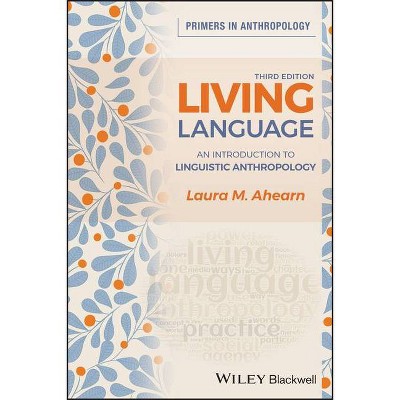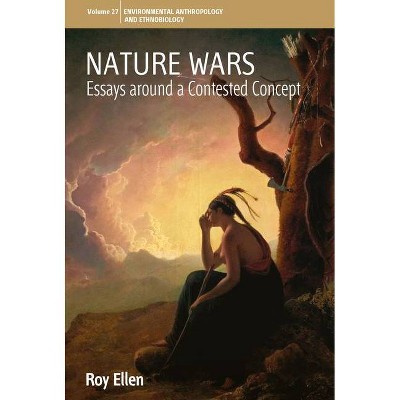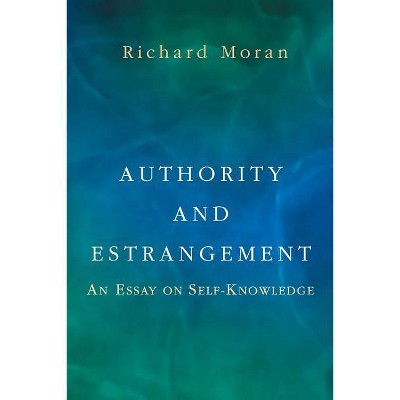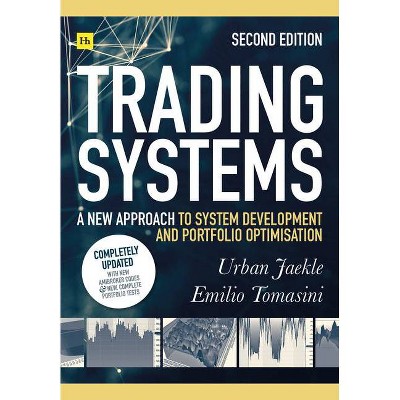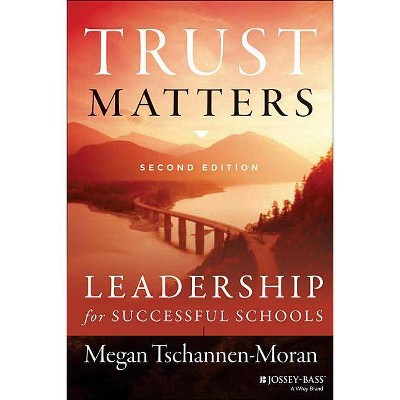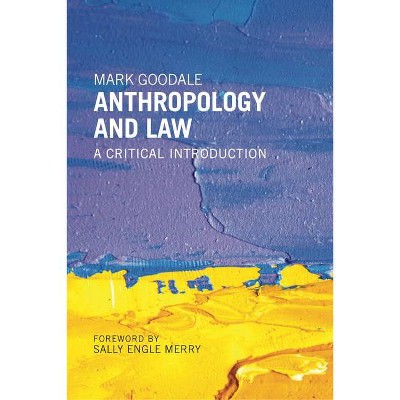People and Nature - (Primers in Anthropology) 2nd Edition by Emilio F Moran (Paperback)
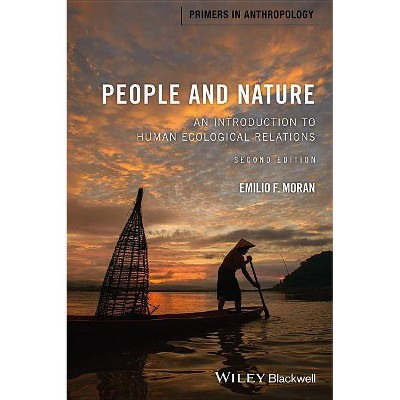
Similar Products
Products of same category from the store
AllProduct info
<p/><br></br><p><b> Book Synopsis </b></p></br></br><p>Now updated and expanded, <i>People and Nature</i> is a lively, accessible introduction to environmental anthropology that focuses on the interactions between people, culture, and nature around the world.</p> <ul> <li>Written by a respected scholar in environmental anthropology with a multi-disciplinary focus that also draws from geography, ecology, and environmental studies</li> <li>Addresses new issues of importance, including climate change, population change, the rise of the slow food and farm-to-table movements, and consumer-driven shifts in sustainability</li> <li>Explains key theoretical issues in the field, as well as the most important research, at a level appropriate for readers coming to the topic for the first time</li> <li>Discusses the challenges in ensuring a livable future for generations to come and explores solutions for correcting the damage already done to the environment</li> <li>Offers a powerful, hopeful future vision for improved relations between humans and nature that embraces the idea of community needs rather than consumption wants, and the importance of building trust as a foundation for a sustainable future</li> </ul><p/><br></br><p><b> From the Back Cover </b></p></br></br><p>Now updated and expanded, <i>People and Nature</i> is a lively, accessible introduction to environmental anthropology written by a respected scholar in the field. Concise yet multi-disciplinary, it focuses on the interactions between people, culture, and nature around the world and brings together insights from a range of fields, including geography, ecology, and environmental studies.</p> <p>As with the first edition, it explains key theoretical issues in the field, as well as the most important research, at a level appropriate for readers coming to the topic for the first time. It also addresses new and evolving issues of importance, including climate change, population change, the rise of the slow food and farm-to-table movements, and consumer-driven shifts in sustainability. The author uses examples--both historical and contemporary--to bring the narrative to life and imbue it with the sense of urgency it deserves. He discusses the challenges we face in ensuring a livable future for generations to come and explores solutions for correcting the damage already done to our environment. In doing so, he offers a powerful and hopeful vision for the future in which improved relations between humans and nature allow us to embrace the idea of community needs rather than consumption wants, and the importance of building trust as a foundation for a sustainable future.</p><p/><br></br><p><b> Review Quotes </b></p></br></br><br>"We need more books like this! Moran provides a wonderfully accessible and compelling introduction to the greatest issue of our times. This book is required reading to understand the all-too-human dimension of the environmental crisis and why there is real hope for recovery." "Tom Lovejoy, The H. John Heinz III Center for Science, Economics and the Environment" <P>"Vintage Emilio Moran! A highly readable, well grounded and insightful stock- taking of human environmental relations--a perspective that will be highly valued by both students and others concerned with an enlightened view of how our species manages or mismanages its habitat." "Daniel G. Bates, Hunter College, CUNY, and Editor, Human Ecology" <P>"In this original and thoughtful book, Moran leads readers from the past history of human interactions with natural ecosystems through the present crisis of environmental sustainability and into the future, noting serious challenges, and positive trends as well." "Ben Orlove, University of California Davis, and Editor, Current Anthropology" <P>"Moran...provides a primer of the field for beginning students, covering current environmental problems from an anthropological perspective and looking to hunter-gatherers, early farmers, and other ancient and traditional peoples for comparison. Students can learn what they can do to make the world simpler and better. Recommended for libraries serving high school and undergraduate students, and anyone interested in living more wisely." "Choice" <P>"""Those among us who would like to better understand the intricate interaction between knowledge on environmental issues and societal reactions will most definitely profit from this little book, which can be whole heartedly recommended." "Environmental Geology" <P>"The major themes of "People and Nature" provide a menu rich enough to satisfy any beginning student of ecological anthropology." "BioScience" <P>""People and Nature" is the first volume published within the series titled "Primers in Anthropology." The aim of the series is to offer a lively overview on a traditional area of anthropological study, an aim which Moran's book no doubt accomplishes." "Journal of Social Anthropology"<br><br>“We need more books like this! Moran provides a wonderfully accessible and compelling introduction to the greatest issue of our times. This book is required reading to understand the all-too-human dimension of the environmental crisis and why there is real hope for recovery.” <BR>"Tom Lovejoy, The H. John Heinz III Center for Science, Economics and the Environment "<!--end--> <BR><P><BR><P>“Vintage Emilio Moran! A highly readable, well grounded and insightful stock- taking of human environmental relations—a perspective that will be highly valued by both students and others concerned with an enlightened view of how our species manages or mismanages its habitat.”<BR>"Daniel G. Bates, Hunter College, CUNY, and Editor, Human Ecology"<BR><P><BR><P>“In this original and thoughtful book, Moran leads readers from the past history of human interactions with natural ecosystems through the present crisis of environmental sustainability and into the future<br><p/><br></br><p><b> About the Author </b></p></br></br><b>Emilio F. Moran</b> is John A. Hannah Distinguished Professor at the Center for Global Change and Earth Observations, the Center for System Integration and Sustainability, and the Department of Geography at Michigan State University, USA. Until 2012, he was Distinguished Professor and the James H. Rudy Professor of Anthropology at Indiana University, USA. He is the author of ten books, fifteen edited volumes, and more than 190 journal articles and book chapters, which address human interaction with the environment under conditions of change. Most recently, he is the author of <i>Environmental Social Science: Human-Environment Interactions and Sustainability</i>(Wiley Blackwell, 2010). He is a Fellow of the Linnean Society of London, the American Anthropological Association, the Society for Applied Anthropology, and the American Association for the Advancement of Science. He was elected to the National Academy of Sciences in 2010.
Price History
Price Archive shows prices from various stores, lets you see history and find the cheapest. There is no actual sale on the website. For all support, inquiry and suggestion messagescommunication@pricearchive.us
